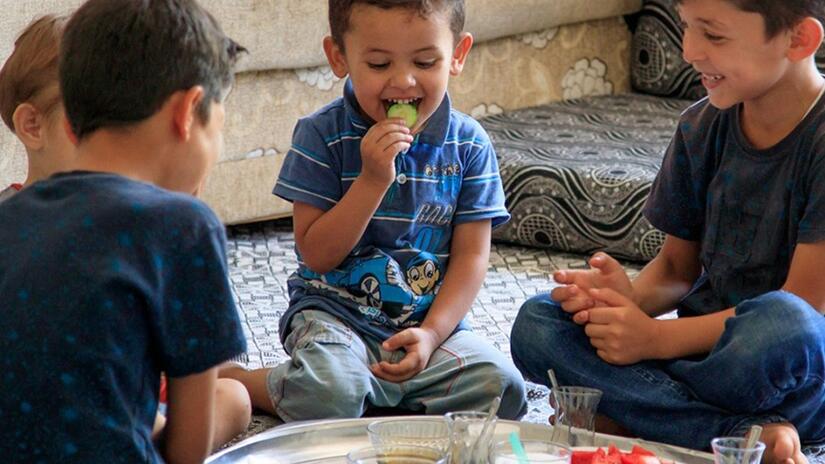COVID-19 has had a devastating impact around the world, including a major economic gap that many families are struggling to overcome. For refugees, COVID-19 is only exacerbating already existing vulnerabilities, losing the little income they earn and forcing them to cut down on food, medicine and other basic needs.
A survey conducted by Turkish Red Crescent (TRC) and IFRC among 500 refugees showed that 70 per cent lost their livelihoods since the COVID-19 pandemic hit Turkey. This, combined with almost 80 per cent reported an increase in expenses, had left them with the frequently referred option of borrowing money to meet their basic needs.
In order to address the COVID-19 socio-economic impact, more than 1.7 million refugees living in Turkey are receiving additional cash assistance through European Union’s Civil Protection and Humanitarian Aid Operations (ECHO) funded Emergency Social Safety Net (ESSN) implemented by the International Federation of Red Cross and Red Crescent Societies (IFRC) and the TRC. This marks the largest single cash transfer in the Red Cross and Red Crescent Movement’s history, totalling EUR 46.4 million. Each family will receive an additional 1,000 Turkish Lira, approximately EUR 128. This is not an added grant, rather reallocated funds from the existing ESSN budget, funded by the EU.
This is part of the Federation-wide emergency appeal for 1,9 billion Swiss francs to help the world’s most vulnerable communities halt the spread of COVID-19 and recover from its effects.
“Because of the coronavirus, our expenses have increased for water, electricity and cleaning products,” said Hanan, a Syrian refugee who fled the war to come to Turkey in 2014. “The Kizilaykart helps me with house expenses, such as food, cleaning materials and other expenses.”
“We are mentally exhausted… This period has exhausted us,” added one refugee receiving support from the ESSN.
The additional cash assistance has taken place over June and July, followed by a regular quarterly cash top-up in August, enabling vulnerable refugee families to overcome the constraints imposed by COVID-19 during this difficult transition period.
“Many people are in survival mode - living hand to mouth during COVID-19. This cash assistance has been a lifeline, allowing them to provide for themselves and their families,” said Jonathan Brass, IFRC’s operations manager for the ESSN in Turkey.
“Cash, particular in times like COVID-19, provides immediate and flexible aid for families to prioritize their needs. It gives them a sense of security, certainty and confidence that their children will not go hungry.”
Cash assistance stands as one of the most efficient ways to support vulnerable communities due to its quick, safe and reliable delivery. Because the cash is being sent to refugees via the digital banking system, it also limits the risk of infection to those we serve. Additionally, cash increases investments in local markets, supports host communities which may also negatively affected by COVID-19 and give freedom and flexibility to families to meet their own individual needs.
Learn more about ESSN here.
This article covers humanitarian aid activities implemented with the financial assistance of the European Union. The views expressed herein should not be taken, in any way, to reflect the official opinion of the European Union, and the European Commission is not responsible for any use that may be made of the information it contains.
Article
Rural Guatemalan women at the heart of community health
Rural Guatemalan women at the heart of community health
| Article

